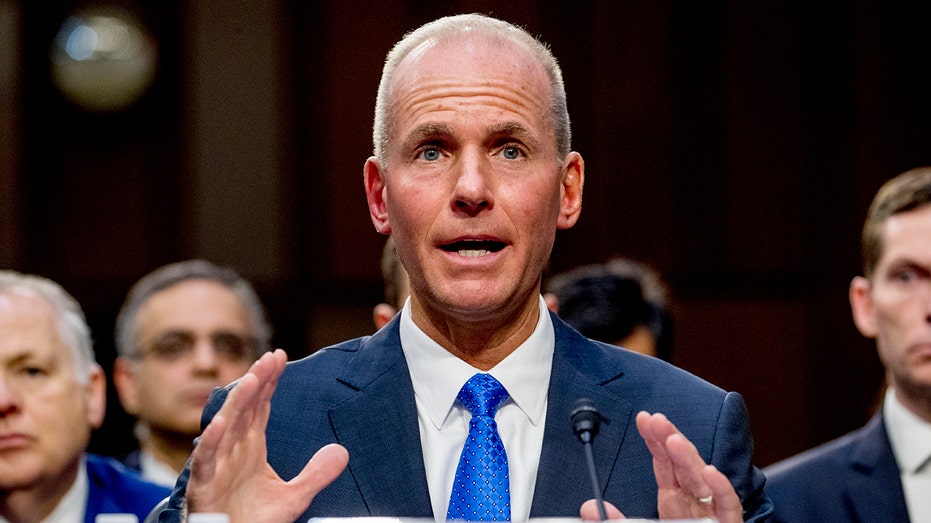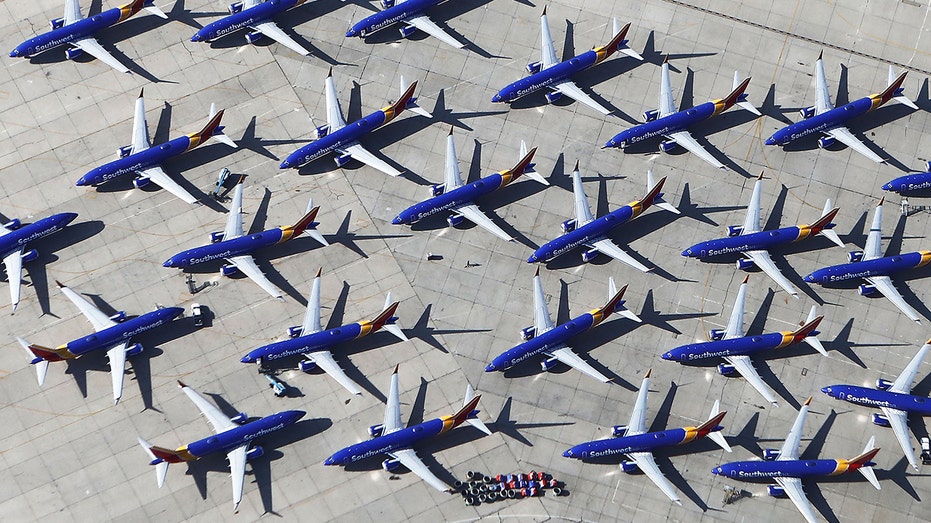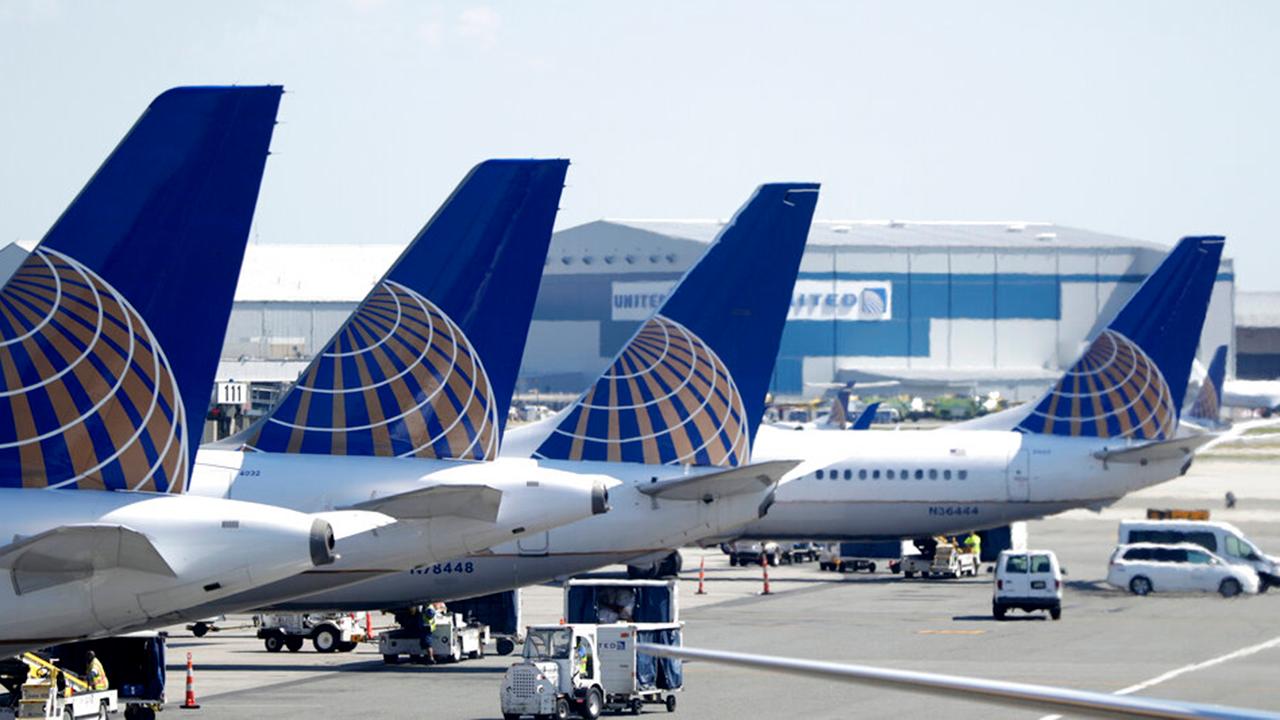Boeing 737 allowed to fly after first deadly crash despite FAA concerns
The FAA reportedly predicted up to 15 accidents like the fatal Lion Air and Ethiopian Airlines crashes over the next 45 years.
The Boeing 737 MAX was allowed to stay in the air after its initial deadly crash even though the Federal Aviation Administration's own analysis showed it could be extremely accident-prone.
The November 2018 analysis was referenced Wednesday during a congressional hearing on the 737 MAX with testimony from FAA chief Stephen Dickson.
FAA CHIEF TO TESTIFY BEFORE CONGRESS ON GROUNDED 737 MAX
A Wall Street Journal analysis found that FAA's projections about 737 MAX accidents made the planes more likely to crash than many earlier Boeing aircraft without software changes. The FAA predicted up to 15 accidents like the fatal Lion Air and Ethiopian Airlines crashes over the next 45 years.
"The FAA rolled the dice on the safety of the traveling public and let the Max continue to fly until Boeing could overhaul its MCAS software," said Peter DeFazio, D-Ore., chair of the House Transportation and Infrastructure Committee.

Boeing Company President and Chief Executive Officer Dennis Muilenburg testified before a Senate Transportation Committee hearing in October. (AP Photo/Andrew Harnik)
The FAA estimate covered the lifespan of the Max and assumed the fleet would eventually grow to 4,800 planes. Fewer than 400 were flying before they were grounded in March, after the second crash.
The head of the FAA said his agency controls the process of approving the return to service of the troubled plane and won't delegate any of that authority to Boeing.
Dickson defended the safety record of U.S. aviation safety while saying "what we have done in the past and what we are doing now will not be good enough in the future."
| Ticker | Security | Last | Change | Change % |
|---|---|---|---|---|
| BA | THE BOEING CO. | 243.03 | +6.08 | +2.57% |
A retired Boeing production manager told the lawmakers about "alarming" conditions at Boeing's 737 factory in Renton, Washington, where two Max planes that crashed were built.
The manager, Edward Pierson, said the assembly line fell far behind schedule by mid-2018 because of cascading problems that began with late delivery of key parts. Yet Boeing went ahead with its plan to boost production from 47 to 52 planes a month.
"By June 2018, I had grown gravely concerned that Boeing was prioritizing production speed over quality and safety," Pierson said in prepared remarks. "I witnessed a factory in chaos and reported serious concerns about production quality to senior Boeing leadership months before the first crash" and again before the second crash.
No action was taken about his concerns, and executives didn't discuss the problems in financial reports, Pierson said.

In this photo taken Sept. 24, 2019, Yonas Yeshanew, who resigned as Ethiopian Airline's chief engineer this summer and is seeking asylum in the U.S., poses with his company's identification card in the Seattle area. (AP Photo/Elaine Thompson)
Boeing hopes airlines will be able to use the plane again early next year after the company completes fixes to flight-control software and computers. Dickson has insisted that the FAA has no timetable for granting that approval.
FAA approximated one fatal crash occurring every two or three years, a risk that would be much more catastrophic than Boeing or FAA let on at the time, according to The Journal.
The FAA pushed back against the idea that it didn't take the accidents seriously enough in a statement to FOX Business, stressing that the agency issued an Emergency Airworthiness Directive a week after the Lion Air crash that killed 189 people.
"On March 12, the agency completed a subsequent TARAM that considered the most likely scenario for the 737 MAX accident in Ethiopia," the statement said. "The accident investigation team also worked overnight to collect and analyze satellite data that might corroborate the hypothesis while investigators provided additional information from the accident site.
GET FOX BUSINESS ON THE GO BY CLICKING HERE
"The FAA acted immediately to ground the aircraft on March 13 after verifying the satellite data, which was reinforced by evidence from the crash site," according to FAA's statement.
"It was clear from the beginning that an unsafe condition existed," an FAA spokesman told The Journal on Tuesday, adding that the 2018 analysis "provided additional context in helping determine the mitigation action."
Analyses like the one in question often overstate risk just to be safe, the spokesman told The Journal.
"The actions that Boeing and the FAA took, including the issuance of the Operations Manual Bulletin and Airworthiness Directive and the timeline for implementing the MCAS enhancements, were fully consistent with the FAA's analysis and established process," Boeing told FOX Business in a statement on Wednesday.
The 737 Max was grounded after two deadly crashes. The first crash involved a Lion Air flight from Jakarta, Indonesia, which left 189 people dead in October 2018. Then an Ethiopian Airlines flight crashed and killed all 157 people on board in March.

A number of Southwest Airlines Boeing 737 MAX aircraft are parked at Southern California Logistics Airport on March 27, 2019 in Victorville, California. (Photo by Mario Tama/Getty Images)
The U.S. was not the first country to ground the jet when it did so in March. Countries including China, Ireland, the United Kingdom and all of Europe either suspended use of the aircraft or banned the planes from their airspace before the U.S. made the call.
FOX Business' inquiries to Boeing were not returned at the time of publication.
CLICK HERE TO READ MORE ON FOX BUSINESS
The Associated Press contributed to this report.




















